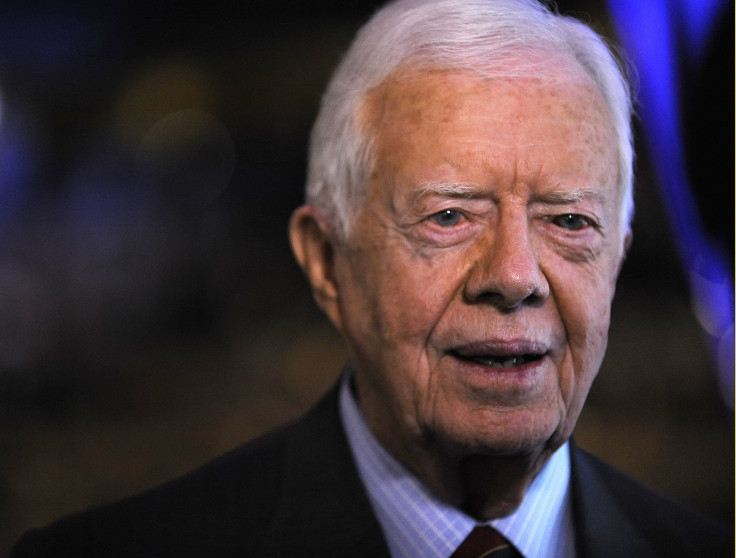Jimmy Carter Slams Obama On ISIS: 'We Waited Too Long' To Confront Islamic State, Ex-President Says

Former President Jimmy Carter criticized President Barack Obama’s handling of ISIS, blaming the president’s delay in acting against the Islamic State group for allowing the militant organization to grow stronger. Carter’s comments came the same week Leon Panetta, Obama’s former defense secretary, slammed his ex-boss on troop levels in Iraq.
“First of all, we waited too long. We let the Islamic State build up its money, capability and strength and weapons while it was still in Syria,” Carter said Tuesday in an interview with the Fort Worth Star-Telegram. “Then when [ISIS] moved into Iraq, the Sunni Muslims didn’t object to their being there and about a third of the territory in Iraq was abandoned.”
Carter said he also disagreed with Obama’s use of drone strikes in killing American citizens suspected of being in al Qaeda or other terrorist organizations. The former president said those killed should have been subject to due process.
“I really object to the killing of people, particularly Americans overseas who haven’t been brought to justice and put on trial,” he said. “We’ve killed four Americans overseas with American drones. To me that violates our Constitution and human rights.”
The former president also said he objected to Obama’s passiveness on Middle East foreign policy in general. “It changes from time to time,” Carter said. “I noticed that two of his secretaries of defense, after they got out of office, were very critical of the lack of positive action on the part of the president.”
One of those was Panetta, whose book, “Worthy Fights: A Memoir of Leadership in War and Peace,” was released Tuesday. Panetta wrote that the president dismissed his advice on upping troop levels in Iraq. The former defense secretary said he believed insufficient troop levels led to further destabilization in Iraq.
"To this day, I believe that a small U.S. troop presence in Iraq could have effectively advised the Iraqi military on how to deal with al-Qaeda's resurgence and the sectarian violence that has engulfed the country," Panetta wrote. "Those on our side viewed the White House as so eager to rid itself of Iraq that it was willing to withdraw rather than lock in arrangements that would preserve our influence and interests.”
© Copyright IBTimes 2024. All rights reserved.












